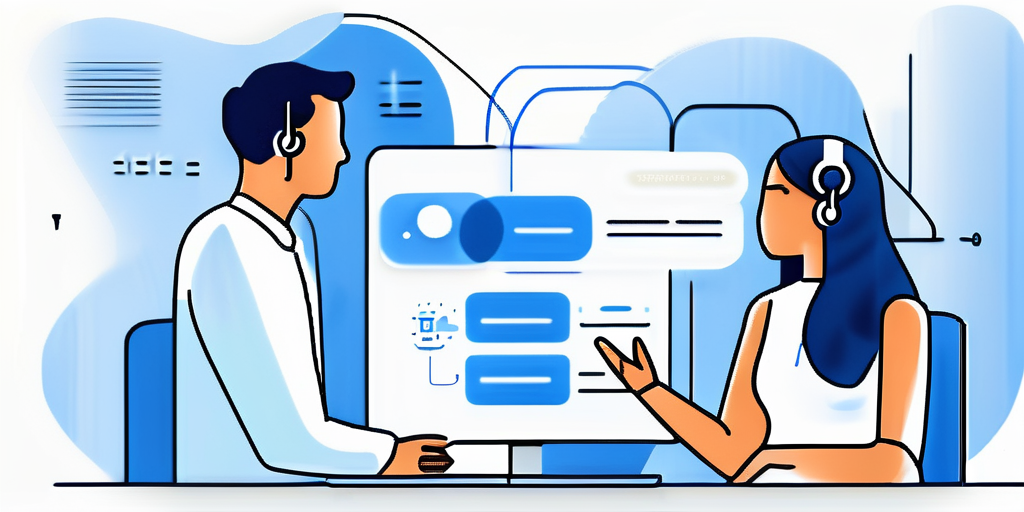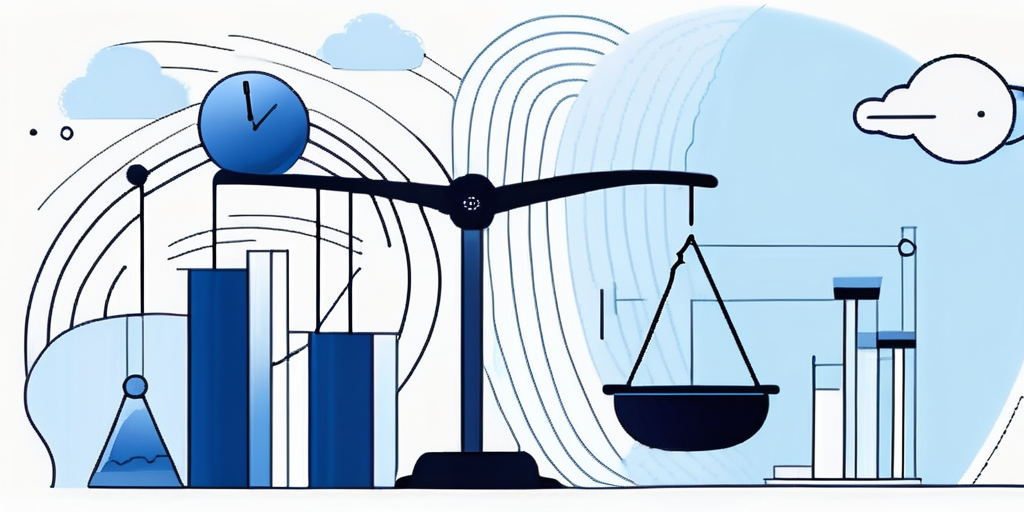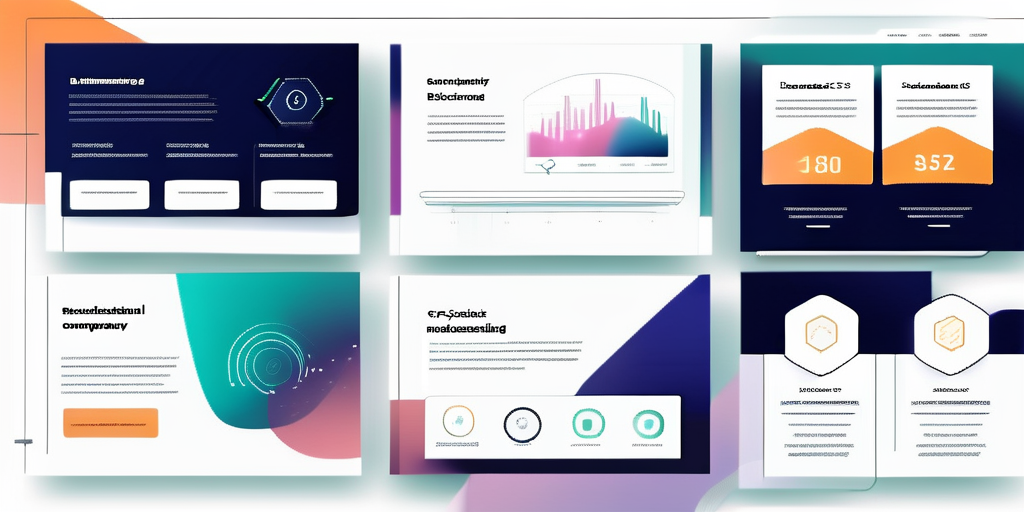Personalized Customer Service in the Age of Chatbots

In today’s digital age, customer service has undergone a significant transformation. With the rise of automation and chatbots, companies are grappling with how to strike the perfect balance between efficiency and a personalized touch. In this article, we will explore the importance of personalized customer service and how to navigate the challenges posed by the digital revolution.
The Importance of Personalized Customer Service
Building strong customer relationships is vital for any business. While automation can make processes more efficient, it is the human touch that truly resonates with customers. By fostering personal connections, companies can create loyal customers who are more likely to promote their brand and increase revenue.

Building Strong Customer Relationships Through Human Touch
One of the key ways to achieve personalized customer service is by offering a human touch. By connecting with customers on a personal level, businesses can demonstrate that they value their individual needs and preferences. This can be achieved through one-on-one interactions, personalizing communication, and providing tailored solutions.
For example, imagine a customer who has been struggling with a particular issue for weeks. They reach out to customer service, hoping for a solution. Instead of receiving a generic response, a customer service representative takes the time to listen attentively, empathize with their frustration, and provide a customized solution that addresses their specific needs. This level of personalized attention not only resolves the customer’s problem but also leaves them feeling valued and appreciated.
When customers feel heard and understood, they are more likely to remain loyal to a brand, even in the face of automation. Investing in training and empowering customer service representatives to engage in meaningful conversations can go a long way in building trust and fostering lasting relationships.
The Power of Empathy in Customer Service
Another essential aspect of personalized customer service is empathy. Empathy allows businesses to understand and relate to their customers’ emotions and experiences. By showing compassion and offering support, companies can create a positive customer experience that leaves a lasting impression.
Empathy can be demonstrated through active listening, understanding customers’ pain points, and offering genuine solutions. For instance, imagine a customer who is struggling with a product malfunction. Instead of simply providing a technical fix, a customer service representative takes the time to empathize with the customer’s frustration and offers a heartfelt apology for the inconvenience caused. They then go above and beyond by offering a replacement product and a discount on future purchases as a gesture of goodwill. This level of empathy not only resolves the immediate issue but also strengthens the customer’s trust and loyalty.
When customers feel heard and valued, they are more likely to remain loyal and recommend a brand to others. By prioritizing personalized customer service and incorporating empathy into interactions, businesses can create a competitive advantage in today’s highly competitive market.
Navigating the Digital Transformation in Customer Service
The digital revolution has reshaped the way businesses interact with their customers. Chatbots, in particular, have become increasingly popular for providing efficient customer support. However, integrating these technologies comes with its own set of challenges.
As businesses strive to keep up with the ever-evolving digital landscape, it is important to understand the potential benefits and pitfalls of implementing chatbots in customer service. While chatbots offer the opportunity to streamline support processes and provide round-the-clock assistance, it is crucial to strike the right balance between automation and human interaction.
Leveraging Chatbots for Efficient Customer Support
Chatbots offer businesses the opportunity to streamline their customer support processes and provide round-the-clock assistance. By automating repetitive tasks and handling common inquiries, chatbots can free up valuable time for human agents to focus on more complex issues.
Imagine a scenario where a customer needs to reset their password. Instead of waiting in a queue to speak with a human agent, they can simply interact with a chatbot that guides them through the process step-by-step. This not only saves time for the customer but also allows human agents to allocate their expertise to more intricate problems.
However, it is crucial to strike the right balance. Customers still crave human interaction and personalized attention. Utilizing chatbots for routine tasks while providing avenues for customers to escalate to human agents when necessary ensures that customers receive both efficient service and human connection.
For example, if a customer encounters a complex issue that requires in-depth troubleshooting, the chatbot can seamlessly transfer the conversation to a human agent. This ensures that the customer receives the personalized attention they desire and allows the human agent to utilize their expertise to resolve the problem effectively.
Striking the Right Balance Between Automation and Human Interaction
While automation can improve efficiency, it is essential not to lose sight of the importance of human interaction. Customers value the ability to speak with a knowledgeable and empathetic representative who can address their unique needs.
Imagine a customer who is experiencing a technical issue with a product they recently purchased. Although a chatbot may be able to provide basic troubleshooting steps, the customer may require additional guidance or reassurance. In such cases, the chatbot can seamlessly transfer the conversation to a human agent who can offer a more personalized and empathetic approach.
By providing seamless transitions from chatbots to human agents, companies can ensure that customers receive the best of both worlds. This hybrid approach combines the benefits of automation and the personal touch of human connections.
Moreover, this approach allows companies to gather valuable insights about their customers. By analyzing the interactions between chatbots and human agents, businesses can identify patterns, common pain points, and areas where automation can be further improved. This data-driven approach enables companies to continuously enhance their customer service strategies and deliver exceptional experiences.
In conclusion, navigating the digital transformation in customer service requires a careful balance between automation and human interaction. Chatbots offer businesses the opportunity to streamline support processes and provide round-the-clock assistance, but it is crucial to remember that customers still value human connection. By seamlessly transitioning between chatbots and human agents, companies can deliver efficient service while ensuring personalized attention to customer needs.
Addressing the Challenges of Unbalanced Digitalization
As companies strive to keep pace with digitalization, it is crucial to maintain flexibility in the ever-evolving customer service landscape. The over-reliance on automation can overshadow the importance of adaptability and personalized experiences.

Ensuring Flexibility in the Digital Customer Service Landscape
Flexibility is key in today’s digital landscape. Companies must be prepared to adapt their customer service strategies to meet evolving customer demands and preferences. This may involve continually monitoring and adjusting automation processes to ensure they align with customers’ needs.
By regularly reviewing and enhancing the customer journey, businesses can proactively identify areas where automation can be enhanced or human touchpoints can be introduced. This iterative process ensures that customer service remains agile and responsive to changing customer expectations.
The Role of Empathy in a Digitized Customer Experience
While technology plays a significant role in customer service, empathy remains an irreplaceable human trait. In a digitized world, companies must make a conscious effort to infuse empathy into their customer interactions.
Training customer service agents to leverage technology while maintaining a human connection is vital. Providing agents with tools to understand customers’ emotions and experiences can help them deliver empathetic support even in a digital context.
Creating a Harmonious Digital Work Environment
Integrating chatbots into a customer service strategy requires a well-rounded approach. However, it is equally important to create a harmonious work environment that supports the implementation and success of these technologies.
The Benefits of Integrating Chatbots into Your Customer Service Strategy
Chatbots can have a profound impact on the efficiency and effectiveness of customer service operations. By automating routine tasks, agents can focus on more complex issues, leading to faster response times and improved customer satisfaction.
Additionally, chatbots provide consistency in responses, ensuring that customers receive accurate and reliable information. This can mitigate errors caused by human factors and build trust with customers.
Recap and Key Takeaways
In conclusion, achieving the perfect balance between personalized customer service and automation is essential in today’s digital age. By utilizing the power of empathy and human touch, businesses can build strong relationships with customers and differentiate themselves from competitors.

While automation, such as chatbots, offers efficiency gains, it is crucial to strike the right balance and ensure that human interaction remains a key aspect of the customer experience. By addressing the challenges of unbalanced digitalization, companies can create a harmonious work environment that supports both technology integration and personalized customer service.
Remember, customers crave personalization and empathy. By leveraging technology to enhance, not replace, human connections, businesses can deliver exceptional customer service that fosters loyalty and drives success in the age of chatbots.